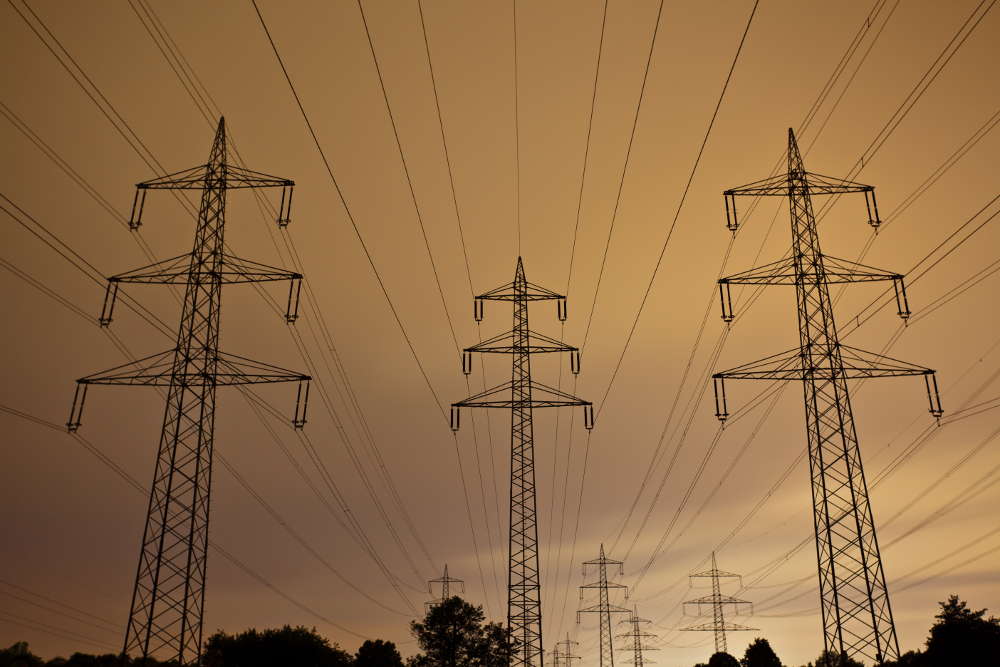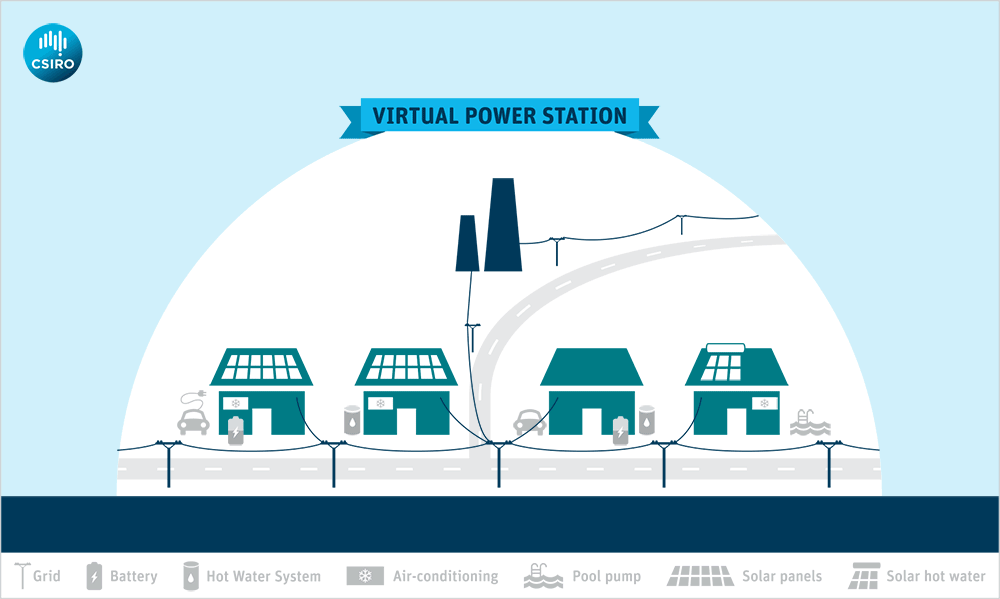What if we could avoid blackouts at times of peak demand by making more supply available while reducing the demand for electricity? Our Virtual Power Station project is investigating how to do just that!

As the mercury rises and we all turn on the aircon, how can we avoid blackouts?
With hot temperatures forecast for many parts of the country over the weekend, we’ll all be hoping to turn up our air conditioners for some respite from the sweltering summer heat! Unfortunately, power outages may leave some of us hot and bothered.
Power outages are caused when we have insufficient energy supply to meet consumer demand. This often occurs during periods of increased demand, such as hot sunny days.
However, the bright side of these cloudless days is they’re perfect for generating lots of solar energy. Solar energy can be used to reduce demand at the times it matters most for the stability of the electricity network.
So what if we could avoid these blackouts at times of ‘peak demand’ by making more supply available while reducing the demand for electricity?
Our Virtual Power Station (VPS) project is investigating how to do just that!
The Virtual Power Station
The VPS is a collection of solar panels, batteries and electrical appliances (such as air conditioners) in a neighbourhood that are intelligently managed to maintain the stability of the power supply. VPS can help to avoid future blackouts by optimising how, when and where we use energy in our homes.
Thanks to funding from the Australian Renewable Energy Agency (ARENA), we’re trialling a VPS in the sunny Brisbane suburb Yarrabilba in collaboration with Energy Queensland, LendLease, inverter manufacturers SMA and Selectronic, and electric vehicle charger manufacturer Tritium.
Our trial is testing supply-demand management algorithms in 67 households with intelligent air conditioners, batteries and home solar systems. If trials are successful, we can expect household savings of hundreds of dollars, the installation of significantly more solar energy systems, and fewer blackouts into the future. All whilst keeping your house cool on a stinkin’ hot summer day!
But how?
The VPS allows neighbourhoods to use electricity more intelligently, by optimising supply and shifting demand patterns.
For example, pre-cooling of rooms is a demand-side solution that could be easily adopted in the VPS neighbourhoods of the future. By remotely turning on your air-conditioner before you leave work, you could return home to a cooler and more pleasant home, reducing the energy needed for electricity during the peak demand period.
You could also store energy produced by your rooftop solar cells during the day in batteries to be used later when its needed most. This would reduce strain on the electricity network, by minimising your demand for centrally generated energy.

The Virtual Power Station links energy sources like rooftop solar panels with energy storage devices and load control systems in a web-based network, to create a single reliable energy supply.
What can be done until then to avoid blackouts?
While the VPS is still in trial phase, there are many things we can all in the meantime to help avoid blackouts.
Here are some of our best tips for you to try at home this weekend:
- Set your air conditioner to no less than 26 degrees and only turn it on in rooms you’re actually using. Alternately, use fans and open windows to circulate cool air as much as possible.
- Turn off unnecessary indoor lighting, particularly if no-one is using the room.
- Turn off appliances usually left in standby mode, including TVs, computers and microwaves.
- Avoid using your electrical oven or stove. Give the BBQ a workout instead!


17th February 2017 at 7:11 pm
What a mob o’ thoroughly modern Millies or silly Billys …. what the heck did your previous generations DO ???